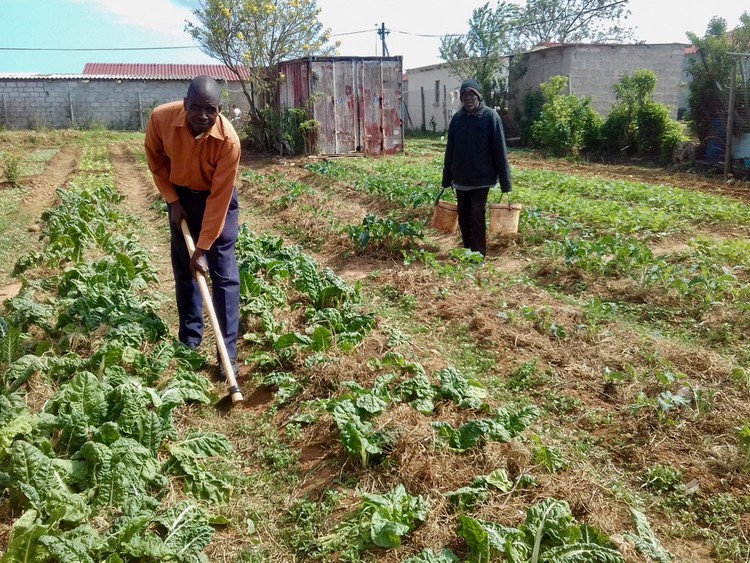Backyard veggie gardens put food on the table
Zimbabwean turns from teaching marketing to marketing vegetables
Earlier this year, 50-year-old Maclean Chambwe left his teaching job to work full time on his gardening project.
“There is a lot of poverty in urban areas that can be combatted by simply turning the backyards of houses into viable vegetable gardens,” he says.
The Zimbabwean-born father of two has been using a half acre of land at the back of Sizwesethu Pre-school in Motherwell, Port Elizabeth, for three years now.
Chambwe says, “I am working with the members of The Helping Hand Foundation. It is a group of elderly men and women who gather here [at the school] every Wednesday for their counselling and singing meetings.”
“After seeing my project, the elders decided to incorporate gardening in their programme. Some of the elders are suffering from diabetes, arthritis, and high blood pressure … Some of them have since established small gardens at their houses,” he says.
90-year-old Jeremia Ngwenya says, “I am helping Maclean. That keeps my body active.” Ngwenya lives with his daughter and plans to teach her how to grow vegetables.
Chambwe says he started gardening after he realised many people were struggling to put food on their tables. “It is very simple to start a garden. There is a ready market for the vegetables,” he says.
He grows spinach, broccoli, onions, beetroot, cabbages and rape, which is considered a delicacy by Zimbabweans.
Chambwe arrived in South Africa in 2010. He has a diploma in marketing. He first taught marketing and mathematics at private colleges in Port Elizabeth.
“I trained in agriculture at high school in Zimbabwe. I arrived here penniless, so I had to do teaching. But I was struggling to strike the balance between teaching and tending to my garden … I have a natural passion for farming,” he says.
“I am getting a positive response, especially with the elders and unemployed youths who are eager to learn the skills of gardening,” says Chambwe.
He says he has problems with water supplies. “I collect water for the garden in containers from a stormwater drain.”
“I need a big plot so I can employ many unemployed youths at the same time teaching them. I don’t want them to work for me forever,” he says.
He recently bought a bakkie and is paying it off. On Mkombe Street he has opened a small market for his vegetables and for fruit which he buys at the Markman Agricultural Produce Market. He also sells fruit, sweets and vegetables at the Crossroad taxi rank.
Support independent journalism
Donate using Payfast

Don't miss out on the latest news
We respect your privacy, and promise we won't spam you.
© 2017 GroundUp. 
This article is licensed under a Creative Commons Attribution-NoDerivatives 4.0 International License.
You may republish this article, so long as you credit the authors and GroundUp, and do not change the text. Please include a link back to the original article.

